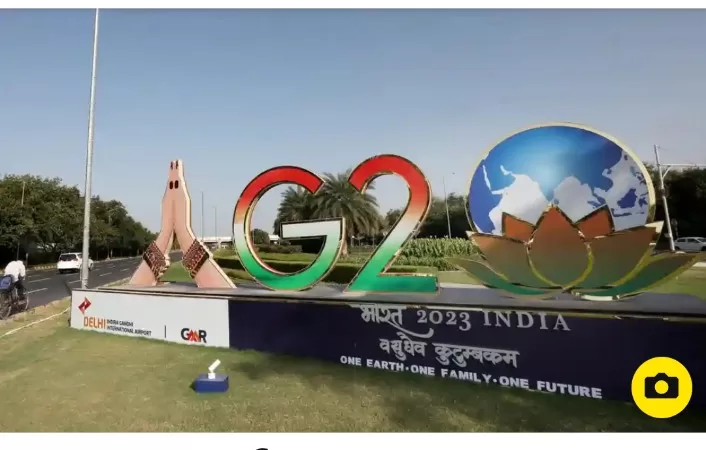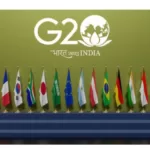As the world grapples with increasingly complex global challenges, the Group of 20 (G20) continually emerges as a beacon of collective inaction. This international forum, comprised of major economies, was established to address critical global issues, yet its track record remains marred by persistent failures. In the face of mounting crises, it is imperative to scrutinize the G20’s inadequacies while acknowledging its enduring significance.
First and foremost, the G20’s inability to marshal a coherent response to the ongoing climate catastrophe is a stark testament to its failures. Despite being responsible for the lion’s share of global carbon emissions, G20 nations have repeatedly demonstrated their inability to commit to meaningful climate action. As of 2021, these nations accounted for a staggering 78% of global emissions, as reported by the Global Carbon Atlas. Yet, their combined climate pledges under the Paris Agreement were insufficient to limit global warming to a manageable degree.
The economic repercussions of the COVID-19 pandemic further expose the G20’s impotence. A report by the International Labour Organization (ILO) reveals that the pandemic wiped out 8.8% of working hours globally in 2020, equivalent to 255 million full-time jobs. Despite the severity of the crisis, G20 nations struggled to devise a unified response, leading to a disjointed and haphazard recovery. The World Bank’s data underscores this failure, indicating that global GDP growth, projected at 4.4% in 2021, is a far cry from a robust and equitable rebound.
Furthermore, the G20’s continued inability to address the escalating humanitarian crises is indefensible. The protracted conflict in Yemen, often dubbed the “forgotten war,” has resulted in catastrophic human suffering, with millions on the brink of famine. G20 nations, among the world’s leading arms exporters, have not only failed to halt the conflict but have actively fueled it by supplying arms to belligerents. The Stockholm International Peace Research Institute (SIPRI) reports that Saudi Arabia, a prominent G20 member, is one of the world’s largest arms importer, with significant contributions from fellow G20 states.
The G20’s approach to global poverty and inequality is equally damning. Despite lofty rhetoric about inclusive growth, a report by Oxfam reveals that the wealthiest 1% of the global population possesses more than twice the wealth of the remaining 99%. Shockingly, G20 nations house the majority of these billionaires. Despite this glaring disparity, tangible progress toward meaningful wealth redistribution remains elusive, perpetuating a cycle of poverty that stifles global development.
To reiterate, the G20’s failures are not merely inconsequential missteps; they have real-world consequences that reverberate across the planet. The Forum for Economic Co-operation and Development (OECD) projects that, by 2030, climate change could push an additional 100 million people into extreme poverty. This grim reality underscores the urgency of climate action, a realm in which the G20 has abjectly faltered.
In the realm of global health, the persistence of vaccine inequity is indefensible. Despite pledges to ensure equitable vaccine distribution, G20 nations have stockpiled vaccines, leaving developing nations to languish without access to life-saving inoculations. As of September 2021, just 0.4% of Africa’s population was fully vaccinated, compared to over 50% in many G20 nations. This disparity epitomizes the G20’s failure to exhibit genuine solidarity in the face of a shared global crisis.
Many foreign policy experts argue that the G20’s failures simply point to the need for modernization in international institutions.(IMF,word Bank, WTO,UN etc)
G20 group too suffering from huge internal divisions _ downgraded bilateral relations between china and India over border dispute, trade war between America and China and Escalating Tensions between West and Russia over Ukraine war, raising hyper nationalism, protectionism and decling globalisation .
G20 group also failed in ending Russia Ukraine war , combating ultra hostile north Korea and Iran from acquiring nuclear capable weapons .
So, why does the G20 still matter in the face of such egregious inadequacies? The answer lies in the magnitude of its potential impact. Collectively, G20 nations account for roughly 80% of the world’s economic output and two-thirds of its population. Their decisions reverberate globally, shaping the destiny of nations and the course of humanity. The G20’s failures are not just failures; they are a betrayal of the global community’s trust in their capacity to lead.
In conclusion, the G20’s persistent inability to address climate change, economic disparities, humanitarian crises, and global health inequities underscores its profound shortcomings. However, the urgency of these challenges and the G20’s unparalleled capacity to address them demand that we do not dismiss this forum. Instead, we must relentlessly hold G20 nations accountable, push for genuine reform, and insist on their fulfillment of the responsibility they bear as stewards of our interconnected world. The G20 still matters because it holds the keys to unlocking a brighter, more equitable global future – if only it can rise above its legacy of inaction and seize the opportunity to lead with purpose and resolve.




